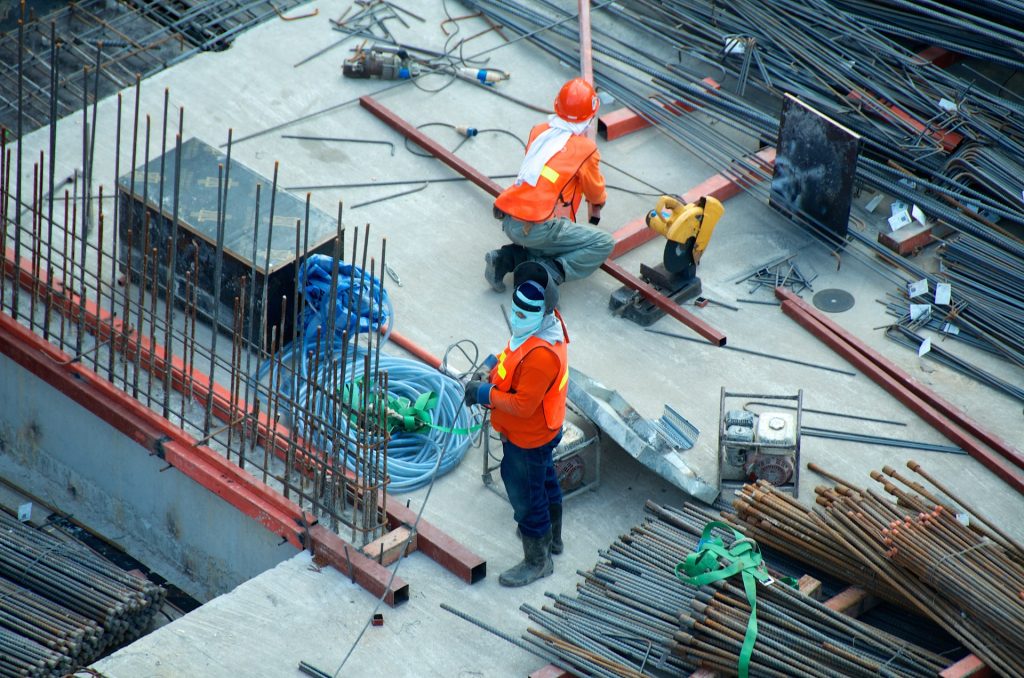Confidence and resilience is driving region’s dealmaking activity

The resilience and the adaptability shown by businesses over the last 18 months is driving business performance and growth in the North West, according to experts in the region. clearwater
A recent webinar in partnership with Clearwater International explored how deal making is shaping up in the region post-Covid.
Companies in the North West have shown unprecedented level of resilience in the last 12 months and according to data from Experian, the region enjoyed an extremely strong start to M&A activity in the first six months of 2021.
The success of the vaccine roll-out and a rapidly improving economic forecast means that business competence is high, with advisory firms reporting a real appetite for deal making.
Discussing the opportunities and challenges for the region were Michael Loudon, partner and International Head of Industrials and Chemicals at Clearwater International, Lizzy Tindall, partner at Eversheds, Peter Barkley, Investment Director at WestBridge PE and Rhys Davenport, Investment Director at BGF Manchester.
Loudon said the M&A market has now found itself in a position of confidence in the region following a ‘painful’ few months when the country went into lockdown last year.
He said there was a ‘frenzy period’ for mid-market activity driven by several factors such as new debt capital, rise in transaction values, changes in tax regimes, as well as business owners taking stock of their situation.
He said: “Fundamentally, people took a lot of confidence in the way that they managed a very difficult challenging period, demonstrated resilience and delivered profits and people took confidence from that for their plans.”
Barkley said he was impressed by the pace at which businesses introduced new services, products or made changes to their approach to market which meant they were able to continue growing despite challenging circumstances.
“And that creates positive sentiment and allows deal activity to continue,” he said.
“But on the whole, it’s the quality of the business that we have here in the North West that continue to drive growth and drive daily activity.”
Davenport said while the pandemic has had an adverse impact on many businesses, it has also driven opportunities for others with BGF investing in 61 businesses in 2020.
“Nobody wants to be the one to profit from something like this but actually, it has driven opportunity through change in people’s buying habits and it’s changed focus for a lot of people,” he said.
“To Michael’s point, there was a period of people taking stock, but very quickly entrepreneurs moved to that proactive mindset of dealing with a problem head on. That’s probably to the credit of those individuals who acted very quickly.
“As we moved to a mindset where we were looking at new opportunities, that has then driven M&A activity within our portfolio.”
Tindall said ‘pent-up demand’ also drove market activity but that business owners had more time to reflect on their future and in which areas they wanted to invest.

Infrastructure and telecoms has remained resilient during the pandemic
Looking at the sectors that outperformed in the last 18 months, Loudon said while there had been a clear acceleration of trends across many sectors because of the pandemic, he pointed to the growth and resilience of the industrials sector.
“In terms of where we’re seeing the most areas of activity, I would say it’s in sectors where you’ve got those longer-term structural drivers of growth, and that for us is in industrial where we’ve seen a lot of activity.
“Another area is infrastructure services.
“We know that COVID has really put pressure on the need for us to all be connected so transport, telecoms and connectivity related services have been active, and you can see the attractiveness of those kind of sectors in 10 to 15 years in the future as those growth drivers are going to be there.”
Loudon also commented on the impact of Brexit coupled with Covid having an impact on areas such as manufacturing.
“Brexit is having a huge impact behind the scenes, but it’s not really talked about,” he commented.
“It’s created friction around supply chain, and actually the year started with real challenges around getting materials into the country and that was slowing down a lot of operations and the Suez Canal issues we saw earlier in the year is still having ramifications in the market today.
“On top of that you’ve got commodity price increases, rise in inflation and fundamentally, there’s loads of curveballs that most industries have faced over the course of the last six months.
“Those challenges have given people confidence to come through that and perform like they have done, and they feel they have the strength and resolve to go and do anything.”
He added: “The flip side of Brexit is the demand for ‘made in the UK’ products which has become quite powerful. It’s something that is resonating with consumers and it’s selling well, and I think a lot of UK manufacturers probably and unexpectedly are benefiting to an extent from that Brexit change.”

Hospitality and leisure have been hit hard by Covid
Davenport said BGF has invested in a wide range of businesses across all sectors but growth within travel, retail, hospitality, and leisure has been limited.
“We’ve done deals in those sectors, and we’ve probably had to work harder for them.
“Anything technology related such as ecommerce or a business experiencing a sort of digital transformation are showing signs of growth.
“We’ve done a lot in healthcare and life sciences in particular and from a North West standpoint I would expect to see those continue to grow.”
He added that business owners and advisors were looking at deals with a much more longer-term approach.
“We’re looking at deals a little harder, working more collaboratively with entrepreneurs, and taking a slightly longer-term view around areas like travel, which we know will come back, it’s just a case of when.
“And ultimately, that will come down to the quality of the management teams and the entrepreneurs we’d be working with making sure they are well prepared going into transactions, and then equally, expectations are being managed appropriately post investment.”
Tindall has also had a busy 12 months with deals across a range of sectors.
She said: “The businesses we’ve seen coming to market and businesses we’ve advised on have all had a number of things in common. They have strong management teams. They have a good track record and ability to demonstrate that they can live through the COVID environment with some businesses managing to find a particular niche during the pandemic.
“Other than physical retail sector which was already struggling and the casual dining sector we’ve not seen other sectors impacted as heavily.
“We’re advising on deals across a number of different sectors in the North West and the deals are getting done.”
Barkley said WestBridge has continued to invest with several platform deals as well as bolt-on acquisitions in the last year within ‘resilient sectors’ including construction, tech and healthcare.
“Anything that has tech enabled services and is EBITDA resilience, they’re the markets that we’re doing really well in and will continue to do well. We’re a generalist investor, and many of the niches that we invest in really didn’t exist 10 years ago, and I suspect COVID will derive new niches that myself and competitors will be investing in over the next five to 10 years.

Construction has remained resilient
“The construction sector is an interesting one. We’ve got a couple of construction assets and it’s an area that’s probably one of the hardest hit but the resilience and the recovery that we’ve seen in that sector when we’re managing Brexit issues, as well as COVID, has been phenomenal and that’s about how businesses have adapted and like a lot of sectors have proven to be very resilient.”
Loudon added: “The nation has been doing up their homes and that might sound like a really simple change, but it’s had a massive impact on the sector. And that’s part of the reason we’re seeing the stock running dry in many places right now. There is an ROI boom going on but is this the new normal?
“How do we transition from where we are today to what might be a normal future?
“We all hope it’ll transition further back to how it was before.
“But it’s hard to see how that plays out in terms of people’s allocation of their own personal capital.
“And I think that’s going to impact a lot of industries.”
A swathe of deals is also expected to come from the ‘distressed environment,’ added Tindall.
“What we haven’t seen in the market is anything like the number of transactions we thought we would see in relation to insolvent businesses.
“The government support schemes has helped businesses which wouldn’t otherwise have survived and certainly wouldn’t have survived the COVID pandemic.
“And so, we expect to see that wave of businesses coming to market either pre distressed or in a genuine distress state, which will create another market, potentially towards the back end of the year.”










